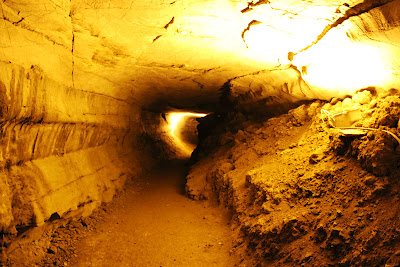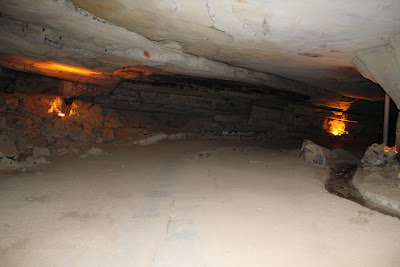Friday, 7 June 2013
Wednesday, 5 June 2013
Nagarjuna Sagar Dam
Nagarjuna Sagar Dam

Nagarjuna Sagar Dam is the world's largest stone masonry dam at the time of its construction, which is built across Krishna River at Nagarjuna Sagar in Nalgonda district of Andhra Pradesh, India. The construction duration of the dam was between the years of 1955 and 1967.
The dam created a water reservoir whose capacity is 11,472 million cubic
metres. The dam is 490 ft (150 m). tall and 1.6 km long with 26 gates
which are 42 ft (13 m). wide and 45 ft (14 m). tall. Nagarjuna Sagar was the earliest in the series of large infrastructure projects initiated for the Green Revolution in India; it also is one of the earliest multi-purpose irrigation and hydro-electric projects in India.
The dam provides irrigation water to the Nalgonda District, Prakasam District, Khammam District, Krishna District and Guntur District and electric power to the national grid.
Mahanandi
Mahanandi Village in Kurnool, is situated to the east of Nallamala
Hills. The nine nandis called as 'Navanandis' can be seen from the
village. The Mahanandiswara Swamy Temple is the prime attraction of the
village, belonging to the Chalukyan period. It is devoted to Lord
Mahanandiswara, one of the forms of Lord Shiva. The festival of Magha
Bhula Chaturdasi is celebrated here in the month of February or March
and lasts for seven days.
Tuesday, 4 June 2013
Kurnool Medical College
When Andhra State was formed in October 1953, the Government of Andhra
decided to start a medical college in the Rayalaseema region of the
state. In Government Order Ms. No. 1835, Health, dated 29 November 1955,
the government of Andhra passed orders to establish a medical college,
the third one in the state at Kurnool.
As the building was not ready for the college the government decided to
admit 50 students intended for Kurnool Medical College at Kurnool City
in July 1956. When Andhra Pradesh was formed and the capital was shifted
to Hyderabad from Kurnool the erstwhile secretariat building was handed
over to the
The college was opened on 21 July 1956 by Sri T.T. Krishnamachari, the
then Finance Minister of India. Fifty students were admitted to the
M.B.B.S. course. Dr. C. Venkata Ramaiah was appointed as First Principal
and Special Officer of Kurnool Medical College.
Srisailam Dam
The Srisailam Dam is a dam constructed across the Krishna River at
Srisailam in the Kurnool district in the state of Andhra Pradesh in
India and is the 3rd largest capacity hydroelectric project in the
country.
The dam was constructed in a deep gorge in the Nallamala Hills, 300 m
(980 ft) above sea level. It is 512 m (1,680 ft) long, 145 m (476 ft)
high and has 12 radial crest gates. It has a reservoir of 800 km2
(310 sq mi).
The left bank power station houses 6 × 150 MW reversible Francis-pump
turbines (for pumped-storage) and the right bank contains 7 × 110 MW
Francis-turbine generators.
Srisailam
Srisailam is situated in Nallamala Hills of Kurnool district, Andhra Pradesh, India.
It is on the banks of River Krishna, about 212 km south of Hyderabad.
Bhramaramba Mallikarjunaswamy Temple dedicated to Lord Mallikarjuna
Swamy (a form of Shiva) and Devi Bhramaramba (a form of Parvathi) is
located here and it is one of the 12 Jyotirlinga temples dedicated to
Lord Shiva.
Srisailam Dam, located about 212 km from Hyderabad and 132 km from
Nandyal, is a multipurpose dam built across River Krishna and caters to
the irrigation and power needs of the state.Orvakal
Orvakal is a village and a Mandal in Kurnool district in the state of
Andhra Pradesh in India. Sufi saint Sri Sri Sri Hazarat Syed Mahamood
Sha Khadri dargha is there in Orvakal.
Yearly once the Urs-e-Sharif of the sufi saint is celebrated across the town. People from around kurnool district attends the Urs-e-Sharif. Urs-e-Sharif is celebrated after 5 days of Maha Shivaratri.
Yearly once the Urs-e-Sharif of the sufi saint is celebrated across the town. People from around kurnool district attends the Urs-e-Sharif. Urs-e-Sharif is celebrated after 5 days of Maha Shivaratri.
Monday, 3 June 2013
Jagannatha Gattu
Jagannatha Gattu Temple is a Hindu temple in B.Thandrapadu, Kurnool. It
is a popular tourist site located near Kurnool city is very famous for
the lord Shiva temple. It has a notable history from the yugas. It is
said that the shivalinga was brought by bheemasena (the middle person of
the pandavas) from the kasikshetra. The shivalinga is of 6 feet height
and 2 feet in width which is made up of granite stone.
About Kurnool
Kurnool District is a district in the state of Andhra Pradesh, India,
located in the west-central part of the state on the southern banks of
the Tungabhadra and Handri rivers.
 The town of Kurnool is currently the headquarters of the district. It
had a population of 3,529,494 of which 23.16% were urban as of 2001.Hall of The Nawab at Adoni fort in Kurnool District
The town of Kurnool is currently the headquarters of the district. It
had a population of 3,529,494 of which 23.16% were urban as of 2001.Hall of The Nawab at Adoni fort in Kurnool DistrictVeerabrahmendra Swamy Temple in Banaganapalle
Navanandi Temples Schematic route map from Nandyal
Telugu, Urdu[2] and Kannada are the most widely spoken languages.
Belum Caves
Belum Caves is the second largest cave in Indian subcontinent and the longest caves in plains of Indian Subcontinent, known for its stalactite and stalagmite formations. Belum Caves have long passages, spacious chambers, fresh water galleries and siphons. It is a natural underground cave formed by the constant flow of underground water. The caves reach its deepest point (150 feet from entrance level) at the point known as Pataalaganga. Belum Caves derives its name from "Bilum" Sanskrit word for caves.[1] In Telugu language, it is called Belum Guhalu. Belum Caves has a length of 3229 metres, making it the second largest natural caves in Indian Subcontinent.
Originally discovered in 1884 by a British surveyor Robert Bruce Foote, later in 1982-84, a team of German speleologists headed by H Daniel Gebauer conducted a detailed exploration of the caves. Thereafter in 1988, the state government declared them protected, and Andhra Pradesh Tourism Development Corporation (APTDC) developed the caves as a tourist attraction in February 2002. Today, 3.5 km of the cave has been successfully explored, though only 1.5 km is open to tourists.[1] There are 16 different pathways, including the main entrance and there are deposits of Quartz in the caves. The caves are formed in Black Limestone.
Sunday, 2 June 2013
Kurnool Fort
Kurnool Fort also known as Konda Reddy Buruju is one of the most prominent landmarks of the Kurnool city. Built by Achyuta Devarayalu of the Vijaynagar Empire, the fort is located in the centre of the city and is a major tourist attraction. The only part left of the splendid architectural structure is the Konda Reddy Buruju. In the very prison of this fort, Konda Reddy took his last breath hence the tower was dedicated to his name. Although the fort is largely in ruins, some of the ruined portions are still standing strong. One of them is the Erra Buruju.
Two small ancient temples are located at the foot of this Buruju. The temples are dedicated to Goddess Yellamma. It is believed that there are hidden treasures in this Buruju. Many a failed attempts have been made to discover this treasure. There are also many amusing inscriptions and carvings in this fort.
Subscribe to:
Comments (Atom)









































